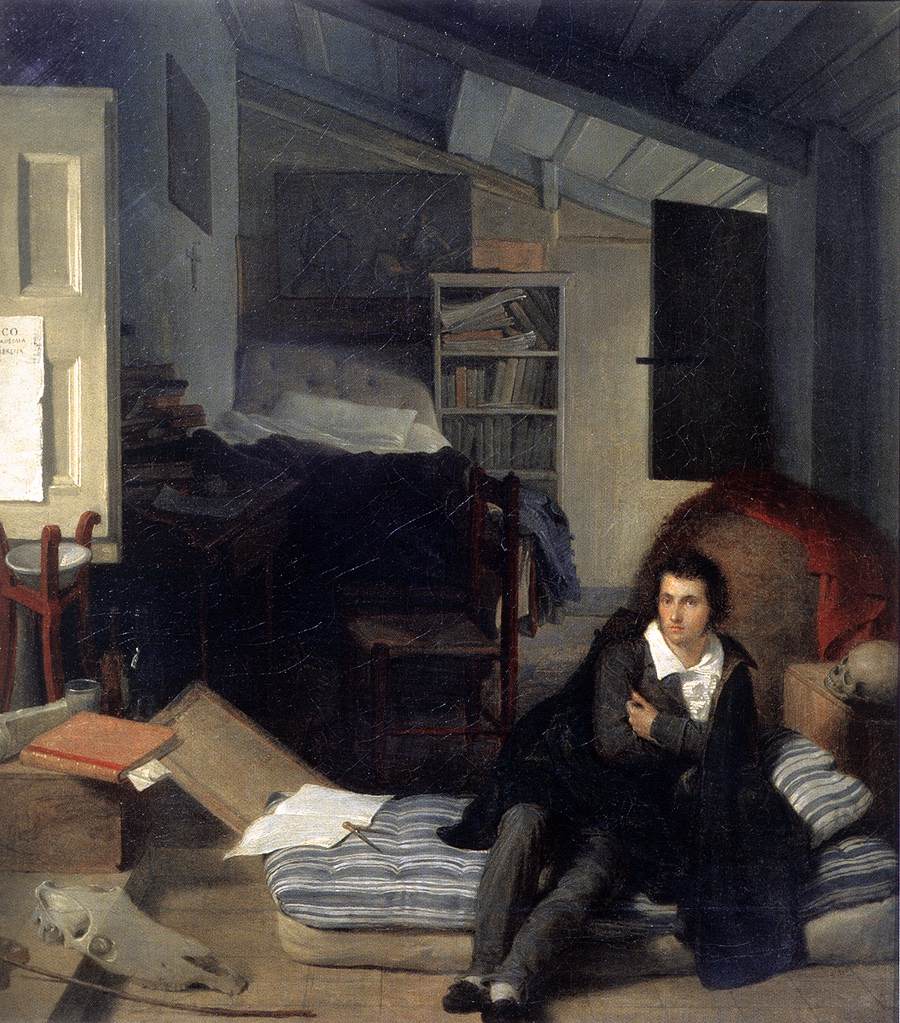Description
Tommaso Minardi's Self-Portrait painting is a work that stands out for its neoclassical artistic style, which is characterized by great precision in the representation of the figures and a clear influence from ancient Greece and Rome. In this work, Minardi shows his ability to capture the essence of his own figure, achieving a balanced and harmonious composition.
The figure of the artist is in the center of the work, surrounded by a dark background that highlights his figure. The pose he adopts is serene and calm, with his gaze directed towards the viewer, which generates a feeling of closeness and connection with the author. The composition is symmetrical and balanced, with a clear attention to detail and proportion.
Regarding color, Minardi uses a palette of soft and delicate tones, which accentuate the serenity and elegance of the artist's figure. The use of light and shadows is very precise, creating an effect of depth and volume that contributes to the feeling of realism in the work.
The history of the Self-Portrait painting is interesting, since it was made by Tommaso Minardi in 1820, when he was already a recognized and respected artist. This work is a sample of the artist's interest in the representation of the human figure and his own identity as an artist.
Little-known aspects of this work include the technique used by Minardi, which involved applying thin layers of paint to achieve a smooth, even surface. Furthermore, it is known that the artist worked on this work for several months, spending many hours perfecting every detail.
In summary, Tommaso Minardi's painting Self-Portrait is a work that stands out for its neoclassical style, its balanced composition and its palette of soft and delicate tones. This work is an example of the artist's interest in the human figure and his own identity as an artist, and his meticulous technique and attention to detail are little-known but interesting aspects of this masterpiece.

